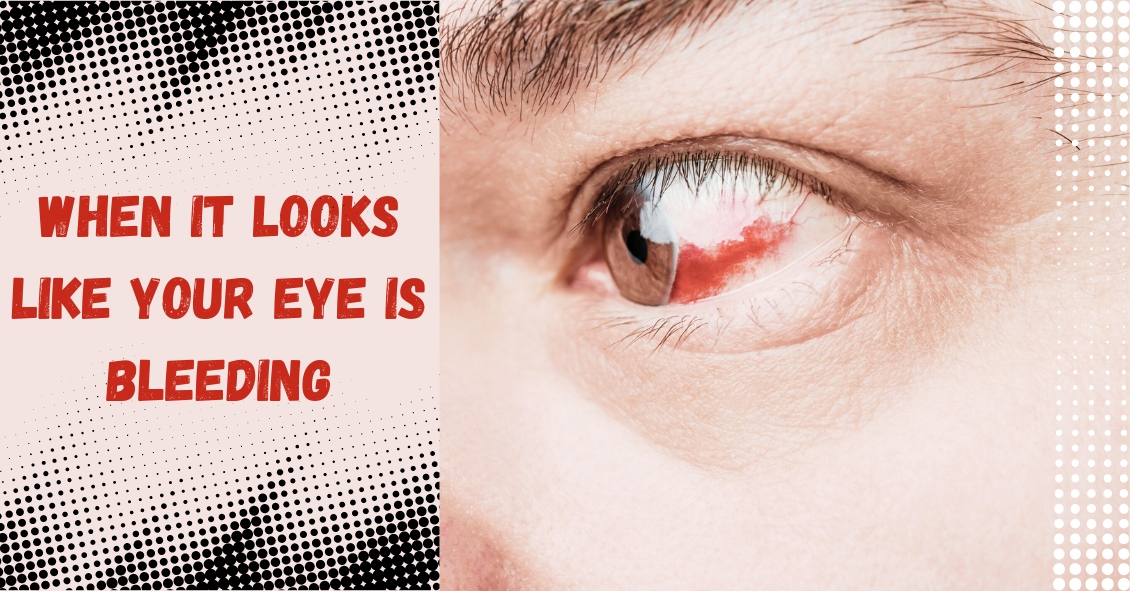We commonly see patients who come in saying that their eyes are bleeding.
The patient is usually referring to the white part of their eye, which has turned bright red. The conjunctiva is the outermost layer of the eye and contains very fine blood vessels. If one of these blood vessels breaks, then the blood spreads out underneath the conjunctiva. This is called a subconjunctival hemorrhage.
A subconjunctival hemorrhage doesn't cause any eye pain or affect your vision in any way. Most of the time, a subconjunctival hemorrhage is asymptomatic. It is only noticed when looking at the mirror or when someone else notices the redness of the eye. There should not be any discharge or crusting of your lashes. If any of these symptoms are present, then you may have another eye condition that may need treatment.
What causes a subconjunctival hemorrhage? The most common cause is a spontaneous rupture of a blood vessel. Sometimes vigorous coughing, sneezing, or bearing down can break a blood vessel. Eye trauma and eye surgery are other causes of subconjunctival hemorrhage. Aspirin and anticoagulant medication may make patients more susceptible to a subconjunctival hemorrhage, but there is usually no need to stop these medications.
There is no treatment needed for subconjunctival hemorrhage. Sometimes there may be mild irritation and artificial tears can be used. The redness usually increases in size in the first 24 hours and then will slowly get smaller and fade in color. It often takes one to two weeks for the subconjunctival hemorrhage to be absorbed. The larger the size of the hemorrhage, the longer it takes for it to fade.
Having a subconjunctival hemorrhage may be scary initially but it will get better in a couple of weeks without any treatment. However, redness in the eye can have other causes, and you should call your eye doctor, particularly if you have discharge from the eye.



